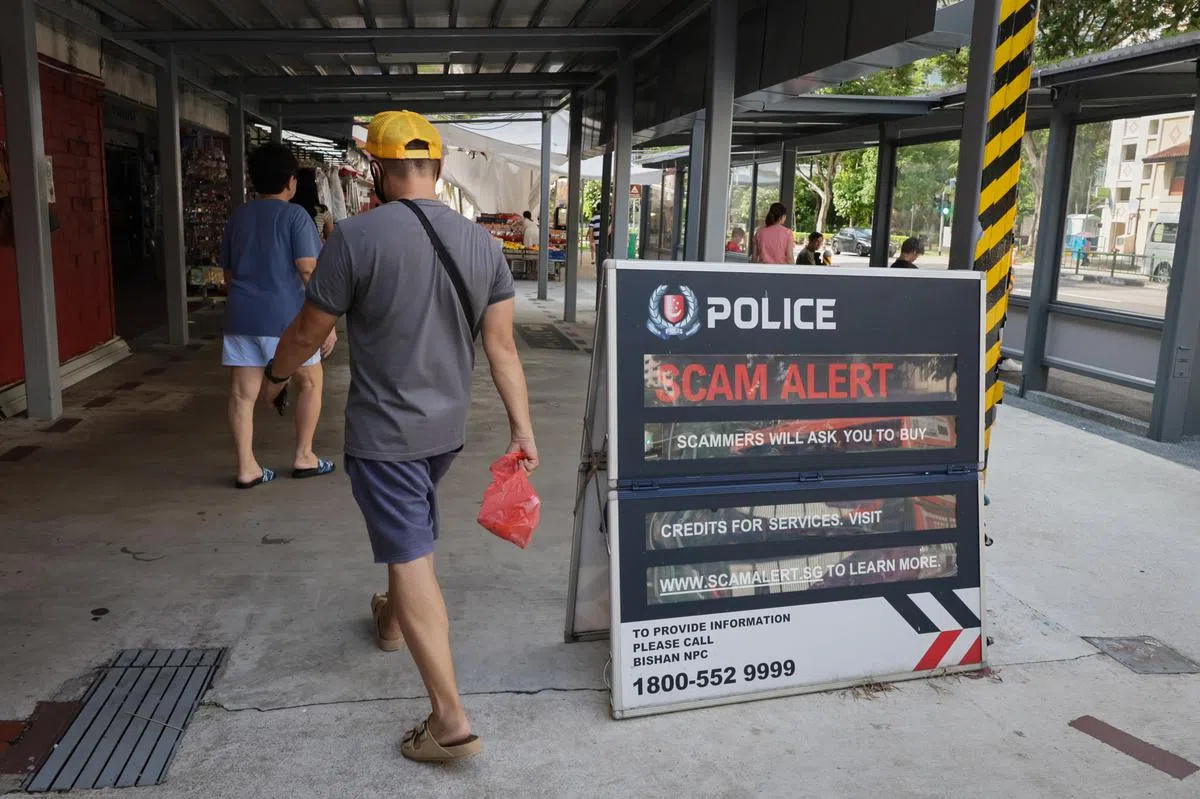[ad_1]
THE Ministry of Home Affairs (MHA) is seeking feedback from the public on a proposed Bill that will give police the power to temporarily restrict the banking transactions of targets of ongoing scams.
In a press release published on Friday (Aug 30), the ministry said that the police will exercise the power on those who refuse to believe that they are being scammed.
Under the Protection from Scams Bill, which will be introduced in a few months, the police can issue restriction orders (ROs) only in relation to scams that are conducted over digital or telecommunication channels, such as calls, SMSes and online communications.
Meanwhile, the police will not be able to do so for scams where there have been in-person interactions. This means that traditional cheating, such as transfers to errant renovation contractors or family and friends will not be covered under the new proposed law.
MHA said: “ROs will only be issued if the police have reason to believe that the individual is being targeted by a scammer and may make transfers to the scammer within the foreseeable future, and after other options to convince the victim have been exhausted and have failed.”
The ROs will cover banking facilities such as money transfers out of a victim’s bank accounts and all credit facilities.
BT in your inbox

Start and end each day with the latest news stories and analyses delivered straight to your inbox.
A victim who has been issued with an RO will not be able to make online banking, mobile banking or in-person over-the-counter transactions.
MHA added that there will be a mechanism for individuals issued with ROs to apply to the police to have access to their money for legitimate purposes.
Meanwhile, they will also not be allowed access to credit card transactions and access to personal loan facilities.
“This guards against the risk of scammers deceiving victims into applying for credit lines or loans on the scammers’ behalf,” MHA noted.
MHA also said that the RO will be issued to all seven domestic systematically important banks in Singapore, in case the victim has banking accounts with more than one bank.
It added that ROs will be issued for a period of 28 days in the first instance, which will give the police time to take further measures.
These measures include engaging the individual as well as their next-of-kin, gathering additional evidence to convince the individual, and convincing the individual to adopt the necessary banking safeguards to stop the ongoing scam.
ROs can then be renewed for up to 28 days at a time if an individual is still assessed to be at risk of being scammed.
The orders can also be appealed by individuals to the minister for home affairs, and any decision made by the minister is final.
MHA noted that in the first half of 2024, 86 per cent of reported scams were the result of self-effected transfers. Such scams happen when scammers do not gain direct control of victims’ accounts, but instead manipulate them into transferring money.
“In some of these cases, the victims were warned by the police, bank or family that they were being scammed, but still refused to believe that this was happening,” the ministry said, adding that these include victims of internet love scams and government-official impersonation scams.
Members of the public who wish to provide feedback on the proposed Bill can do so by e-mailing MHA at scams_feedback@mha.gov.sg or by mail.
More details on the proposal can also be found on the government’s Reach website.
[ad_2]
Source link




